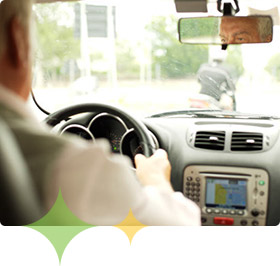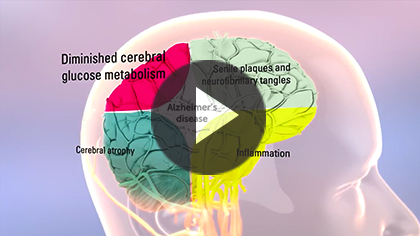Driving difficulties*
Approach this sensitive issue with understanding1,2
 When people are diagnosed with Alzheimer’s disease, they may be able to continue driving for some time. However, when they can no longer think clearly, remain alert, and make good decisions, they should stop driving. People with Alzheimer’s disease may not want to stop driving, and sometimes they may not even acknowledge they have a problem. Losing independence can be distressing for them, so it’s important to acknowledge their feelings and understand how upsetting it can be to reach this stage.
When people are diagnosed with Alzheimer’s disease, they may be able to continue driving for some time. However, when they can no longer think clearly, remain alert, and make good decisions, they should stop driving. People with Alzheimer’s disease may not want to stop driving, and sometimes they may not even acknowledge they have a problem. Losing independence can be distressing for them, so it’s important to acknowledge their feelings and understand how upsetting it can be to reach this stage.
Please remember that if the person with Alzheimer’s keeps driving when it is no longer safe, someone could be hurt or killed. It’s important to keep this in mind when ensuring the person doesn’t drive, particularly if it seems as if you may be hurting his or her feelings.
Signs of unsafe driving1
- New dents or scratches on the car
- Taking a long time to do a simple errand and not being able to explain why may indicate that the person got lost
Stopping someone with Alzheimer’s disease from driving1
- Talk about your concerns with the person in a caring, understanding way
- Talk to your loved one’s doctor about the person’s driving issues. Some State Departments of Motor Vehicles require the doctors to tell them if the person with Alzheimer’s disease should no longer drive
- Hide car keys, move the car, take out the distributor cap, or disconnect the battery if necessary
- Organize other transportation options
Transportation options1
There are many alternative forms of transportation to driving. Options are available for people with Alzheimer’s disease to travel on their own, when possible. You can find information about transportation services in your area by contacting your local Area Agency on Aging. Services may include:
- Low-cost buses
- Taxi services
- Carpools for older people
Some churches and community groups also have volunteers who can help take older people wherever they need to go.


